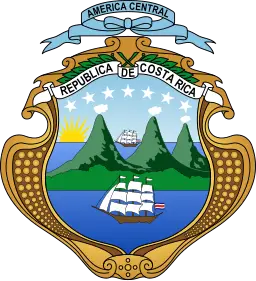Spanish Podcast Summary
The goal of this series is to introduce the listener to Spanish travel phrases as part of natural conversation. We introduce Spanish phrases for travel along with translations to make it easy to comprehend.
If you’re a Spanish learner looking to expand your vocabulary while exploring the beautiful country of Costa Rica, this podcast is a fantastic resource. Here’s a breakdown of the key Spanish words and phrases you’ll learn, categorized by topic.
Spanish Travel Phrases
- Avión (Airplane): Puedes tomar un avión. (You can take an airplane.)
- San José (San José): El avión llega a San José, la capital. (The airplane arrives in San José, the capital.)
- Ciudad (City): San José es una ciudad grande. (San José is a big city.)
- Edificios (Buildings): Tiene muchos edificios y carros. (It has many buildings and cars.)
- Parques (Parks): También hay parques y museos. (There are also parks and museums.)
- Museos (Museums): Puedes caminar y ver muchas cosas. (You can walk and see many things.)
Nature Vocabulary in Spanish
- Playas (Beaches): En Costa Rica, hay muchas playas. (In Costa Rica, there are many beaches.)
- Arena (Sand): Las playas tienen arena blanca. (The beaches have white sand.)
- Mar (Sea): Puedes nadar en el mar. (You can swim in the sea.)
- Surf (Surfing): También puedes hacer surf. (You can also surf.)
- Olas (Waves): Las olas son grandes y fuertes. (The waves are big and strong.)
- Selvas (Rainforests): Además de las playas, hay selvas. (Besides the beaches, there are rainforests.)
- Árboles (Trees): Las selvas tienen muchos árboles y animales. (The rainforests have many trees and animals.)
- Animales (Animals): Puedes ver monos, perezosos y aves. (You can see monkeys, sloths, and birds.)
- Senderos (Trails): En la selva, puedes caminar por los senderos. (In the rainforest, you can walk on the trails.)
- Volcanes (Volcanoes): Costa Rica también tiene volcanes. (Costa Rica also has volcanoes.)
- Aguas termales (Hot springs): También hay aguas termales. (There are also hot springs.)
Spanish Food Vocabulary
- Comida (Food): La comida en Costa Rica es muy rica. (The food in Costa Rica is very delicious.)
- Arroz con frijoles (Rice with beans): Puedes comer arroz con frijoles. (You can eat rice with beans.)
- Frutas (Fruits): También hay frutas como piña, mango y papaya. (There are also fruits like pineapple, mango, and papaya.)
- Platos típicos (Typical dishes): En los restaurantes, puedes probar platos típicos. (In the restaurants, you can try typical dishes.)
- Gallo pinto (Gallo pinto): Un plato típico es el gallo pinto. (A typical dish is gallo pinto.)
Other Spanish Travel Vocabulary
- Pasaporte (Passport): Para viajar a Costa Rica, necesitas un pasaporte. (To travel to Costa Rica, you need a passport.)
- Boleto de avión (Airplane ticket): También necesitas un boleto de avión de regreso. (You also need a return airplane ticket.)
- Reglas (Rules): Es importante seguir las reglas. (It is important to follow the rules.)
- Montar a caballo (Horse riding): Puedes montar a caballo en la playa. (You can ride a horse on the beach.)
- Tirolesa (Zip-lining): También puedes hacer tirolesa en la selva. (You can also zip-line in the rainforest.)
- Buceo (Diving): Otra actividad es el buceo. (Another activity is diving.)
- Parques nacionales (National parks): También puedes visitar parques nacionales. (You can also visit national parks.)
- Clima (Climate): En Costa Rica, el clima es cálido. (In Costa Rica, the climate is warm.)
- Seguro (Safe): Costa Rica es un país muy seguro. (Costa Rica is a very safe country.)
Conclusion
This podcast is an excellent tool for Spanish learners, offering a rich vocabulary related to travel, nature, food, and daily life in Costa Rica. By listening and practicing these words, you’ll not only improve your Spanish but also gain a deeper understanding of this beautiful country. Happy learning!
